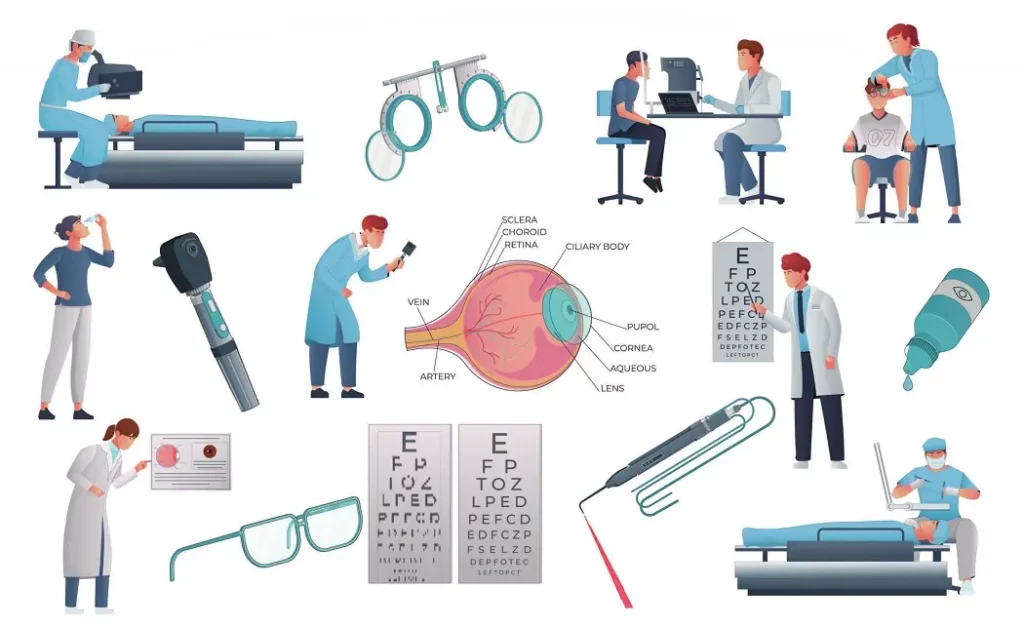Featured
Table of Contents

Routine eye examinations are important for keeping great vision and identifying potential eye wellness problems early. The regularity of these tests can vary considerably based on a person's age, lifestyle, and total health and wellness. Recognizing the advised schedule for eye examinations can assist guarantee that people of any ages receive appropriate care and tracking for their eye health.
Newborns and Toddlers (0-2 Years)
For infants and young children, eye exams are crucial for discovering any kind of potential vision issues at an early stage. The American Academy of Ophthalmology suggests that a kid's very first eye test need to take place at around 6 months of age. Throughout this preliminary visit, the eye care specialist will examine the child's visual growth and check for any apparent eye concerns.Following this initial exam, it is advised that youngsters have another eye examination at age 3. This go to will concentrate on analyzing the youngster's overall aesthetic feature, consisting of eye positioning and the ability to track objects. If no issues are spotted, the following test should be scheduled prior to the kid begins institution, commonly around age five or six.
School-Aged Children (6-18 Years)
Normal eye tests ought to be scheduled every one to 2 years when children reach institution age. Vision is essential for learning and advancement, and several schools carry out vision screenings. These screenings do not replace a thorough eye examination by an eye treatment expert.For children involved in sports or tasks requiring significant visual emphasis, yearly eye examinations might be suggested. Additionally, if a child shows indicators of vision issues-- such as problem checking out, squinting, or regular migraines-- a browse through to the eye physician must be scheduled as soon as possible.
Young Person (19-39 Years)
Young person usually have fewer vision adjustments than older age, yet routine eye exams stay important. The basic referral is to schedule an eye test every 2 years throughout this period. People with certain risk factors-- such as a household history of eye condition, diabetic issues, or those who use call lenses-- need to take into consideration yearly eye examinations.Additionally, those who spend considerable time on digital devices might experience electronic eye pressure. If symptoms such as dryness, tiredness, or blurred vision happen, it may be a good idea to see an eye care expert sooner.
Grownups (40-64 Years)
As individuals enter midlife, the possibility of developing vision problems rises. Adults aged 40 to 64 must arrange eye examinations each to 2 years. This age may begin to experience presbyopia, an all-natural age-related condition that makes it testing to concentrate on close items. Eye exams can also help spot various other usual age-related conditions such as glaucoma, cataracts, and macular degeneration.If people in this age group have danger factors such as high blood pressure or diabetic issues, they might call for even more regular evaluations to check their eye wellness closely.
Senior Citizens (65 Years and Older)
For elders, normal eye examinations become also more crucial. The American Optometric Organization recommends that individuals matured 65 and older have an eye test at the very least once a year.Final thought.
Comprehending the appropriate timetable for eye examinations based on age is essential for maintaining ideal eye health and wellness throughout life. From babies to elders, regular eye evaluations play an essential function in finding problems early and guaranteeing that vision stays sharp. By sticking to these guidelines and talking to an eye care specialist, people can take positive actions towards maintaining their vision and total health and wellness. Whether it's a child's initial browse through or a senior's annual exam, focusing on eye treatment is an investment in lifelong wellness.Table of Contents
Latest Posts
Host Your Perfect Occasion: Location Rental Alternatives for Every Event
Published en
1 min read
Host Your Perfect Event: Place Rental Alternatives for each Occasion
Published en
1 min read
Discover Relaxation at the Claridge Indoor Swimming Pool
Published en
1 min read
More
Latest Posts
Host Your Perfect Occasion: Location Rental Alternatives for Every Event
Published Mar 29, 25
1 min read
Host Your Perfect Event: Place Rental Alternatives for each Occasion
Published Mar 21, 25
1 min read
Discover Relaxation at the Claridge Indoor Swimming Pool
Published Feb 12, 25
1 min read